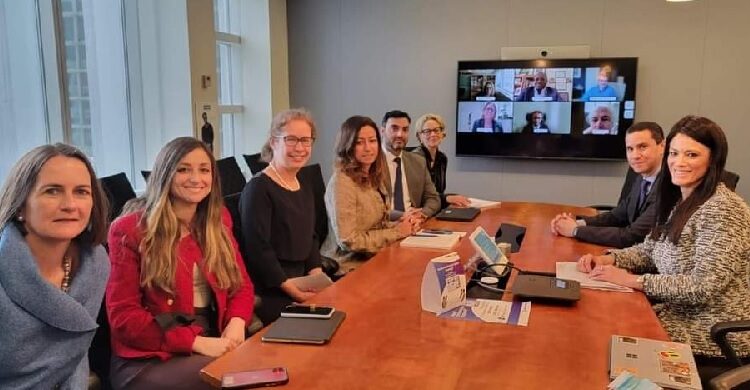CAIRO – Egypt’s International Cooperation Minister Rania el-Mashat said the World Bank’s Country Climate and Development Report (CCDR) is a key tool to support the Stat’s policy to shift to green economy.
Mashat made the remarks during her meeting with Ayat Soliman, the Regional Director for the World Bank’s Sustainable Development Department for the Middle East and North Africa and Paul Noumba, the Regional Director of the World Bank’s Infrastructure Department in the Middle East and North Africa region, as well as other bank officials.
The CCDR conducts a comprehensive analysis of the economic situation in Egypt and focuses on the sectors of water, agriculture, energy, transportation, industry, and resilient coastal cities.
The international cooperation minister called for adding the National Climate Change Strategy 2050 to the CCDR, asserting that Egypt moves ahead with its strategy for enhancing its green transformation and reducing harmful emissions, in addition to strengthening the transition to clean energy.
She explained that Egypt is implementing ambitious plans to promote the sustainable management of water resources and renewable energy and establish climate change adaptation projects, as well as produce green hydrogen.
Mashat noted that the 27th United Nations Climate Change Conference (UNCCC), COP27, to be held in the Red Sea resort city of Sharm-el Sheikh in November would provide an ideal opportunity to present Egyptian and world efforts to reach net zero carbon emissions and strengthen climate financing.
Egypt’s development cooperation portfolio with the World Bank amounts to a total of $5.9 billion across 16 projects in several sectors, including transportation, education, housing, health, social protection, petroleum, water treatment, environment, financial inclusion and women empowerment.






Discussion about this post